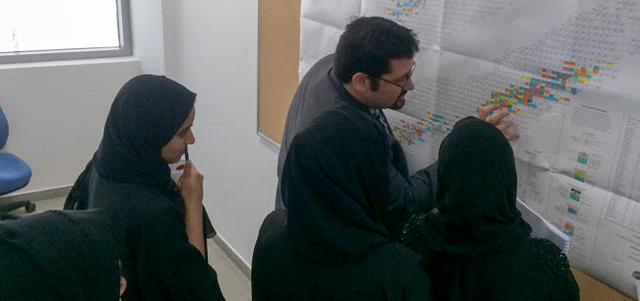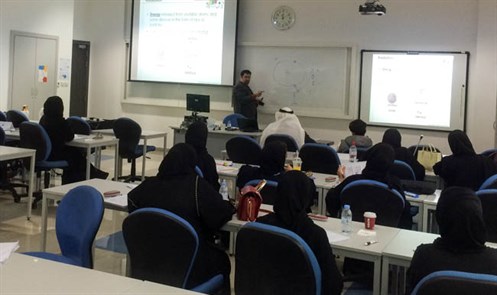
For the past five years, NSSPI has been providing subject matter experts to serve as instructors at the Gulf Nuclear Energy Infrastructure Institute (GNEII) at Khalifa University in Abu Dhabi, UAE for their 3S Fundamentals course, a thirteen week course in the basic concepts of nuclear energy with particular emphasis on nuclear safety, safeguards, and security (3S). GNEII was created under the guidance and support of the US Department of Energy/National Nuclear Security Administration and the US Department of State, with NSSPI and Sandia National Laboratories (Sandia) collaborating to develop the curriculum, provide instructors, and prepare Khalifa University staff and GNEII program alumni to become permanent GNEII faculty. GNEII is a regional institute whose objective is to immerse future nuclear program decision makers in safety, safeguards, security, and nonproliferation concepts and to familiarize them with how these concepts apply in a regional and international context.
The current class of GNEII fellows consists of 21 students, all from the UAE. The 3S Fundamentals course began in mid-January with a week of lectures provided by staff from Sandia. During the second week, NSSPI research engineer Claudio Gariazzo provided 5 full-day lectures on basic atomic physics, the foundation of the students’ knowledge base for the entire course. Gariazzo lectured on nuclear power production, radiation and interactions, nuclear and reactor physics, basic reactor operations, and the biological effects of radiation. Instructors from the Department of Nuclear Engineering at Texas A&M University, Khalifa University, and Sandia will teach the remaining modules for this course.

This is the fifth and final year of the initial funded project, and thus the last year during which NSSPI and Sandia will be directly involved in the GNEII 3S Fundamentals course. The next phase of GNEII is being negotiated between NSSPI, Sandia, and Khalifa with the hope that collaborations among them in nuclear security education and research will continue.